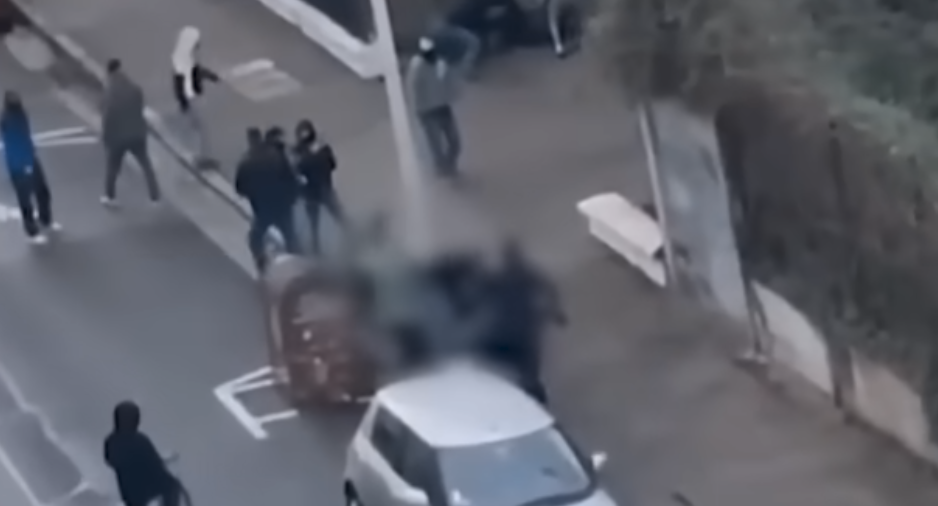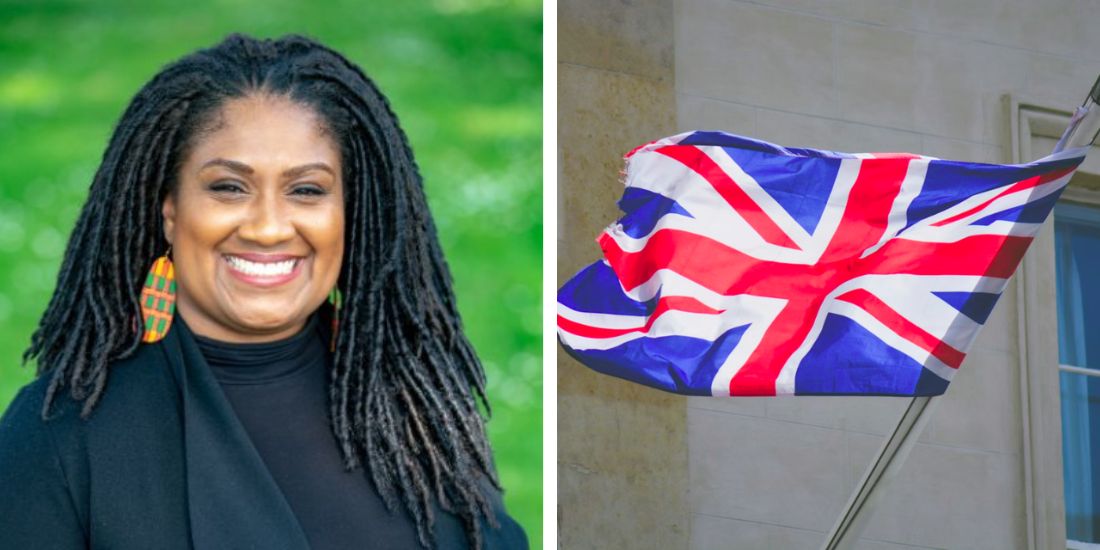The key moment in President Obama's "60 minutes" interview on Sunday night marked the rollout of his second attempt to spin away his infamous "junior varsity" comments about ISIS. You may recall his first attempt was an utterly bizarre plan to deny he made the comments at all. That strategy lasted for less than a week, with White House spokespeople retreating under heavy fire from reporters brandishing transcripts of Obama's remarks. Even some of the journalists normally inclined to carry unlimited amounts of water for this President recoiled from the Stalinesque demand to pretend the "jayvee" moment never happened. So here comes the second strategy, in which the teenager who somehow slipped into the White House blames everyone else for his failures. For a moment, I wondered if "The Simpsons" had moved to CBS... but no, this is the President of the United States talking, not Bart. I didn't do it nobody saw me do it you can't prove anything! Obama warmed up with a bit of light whining about how under-appreciated he is, insinuating that the American people are foolish for not giving him higher approval ratings, since His Grace had the misfortune of stumbling into office right after History's Greatest Monster:
Steve Kroft: A lot of things going on in the world right now. A lot of them bad. You run into people on the street and they say the world is falling apart. You got Syria. You've got Iraq. You've got Ukraine. You've got Ebola. Is this the most difficult period of your presidency, the biggest challenge of your presidency, this period we're in right now?
President Obama: It's a significant period. But if you think about what I walked into when I came into office, we had not only two wars still active, but we also had a world financial system, which was becoming unraveled. And we were losing 800,000 jobs a month. So you know, we've had challenges before. And we've overcome them. That's not to downplay the serious challenges that we do face right now, mostly internationally.
The workforce is at 40-year lows and our national debt has very nearly doubled, with piles of money going to Obama cronies and Democrat slush funds, but he's going to keep tossing out his cooked-up job statistics until Americans realize what an economic miracle worker he's been.
Next, Obama struck fear into the hearts of the Islamic State's jihadi army by having another argument with himself, live on the air, over whether the United States is actually at war or not. It's a "very real battle" but it's, like, totally not a war, dude, because Obama ended war.
Steve Kroft: You spent most of your time in office trying to get the United States out of military entanglements. And last year at the United Nations, you noted that we were out of Iraq and unwinding our position in Afghanistan. And this year ... in your State of the Union message, you said, I quote, "America must move off of permanent war footing." But it feels once again like we are on one. President Obama: Well, I distinguished, Steve, between counterterrorism and the sort of occupying armies that characterized the Iraq and Afghan war. That's very different from us having 150,000 troops in Iraq on the ground or 60,000 in Afghanistan. Steve Kroft: Are you saying that this is not really a war? President Obama: Well, what I'm saying is that we are assisting Iraq in a very real battle that's taking place on their soil, with their troops. But we are providing air support. And it is in our interest to do that, because ISIL represents sort of a hybrid of not just the terrorist network, but one with territorial ambitions, and some of the strategy and tactics of an army. This is not America against ISIL. This is America leading the international community to assist a country with whom we have a security partnership with. To make sure that they are able to take care of their business.
Then comes the good stuff - the moment in which every endangered Democrat politician in the country felt the ground drop out from under their feet, as Barack Obama formally declared war on the American intelligence community, essentially claiming they tricked him into making his boneheaded "jayvee" comment:
Steve Kroft: Two years ago, in the White House, in this building, you talked about al Qaeda being decimated. You talked about al Qaeda being back on its heels. Two years later, you've got al Qaeda affiliates and al Qaeda offshoots controlling huge chunks of both Iraq and Syria. And you have militias, Islamic radical militias in control of Libya.
President Obama: If you'll recall, Steve, you had an international network in al Qaeda between Afghanistan and Pakistan, headed by Bin Laden. And that structure we have rendered ineffective. But what I also said, and this was two years ago and a year ago, is that you have regional groups with regional ambitions and territorial ambitions. And what also has not changed is the kind of violent, ideologically driven extremism that has taken root in too much of the Muslim world. And this week, in my speech to the United Nations General Assembly, I made very clear we are not at war against Islam. Islam is a religion that preaches peace and the overwhelming majority of Muslims are peaceful. But in the Muslim world right now, there is a cancer that has grown for too long that suggests that it is acceptable to kill innocent people who worship a different God. And that kind of extremism, unfortunately, means that we're going to see for some time the possibility that in a whole bunch of different countries, radical groups may spring up, particularly in countries that are still relatively fragile, where you had sectarian tensions, where you don't have a strong state security apparatus. That's why what we have to do is rather than play whack-a-mole and send U.S. troops wherever this occurs, we have to build strong partnerships. We have to get the international community to recognize this is a problem. We've got to get Arab and Muslim leaders to say very clearly, "These folks do not represent us. They do not represent Islam," and to speak out forcefully against them.
Steve Kroft: I understand all the caveats about these regional groups. But this is what an army of 40,000 people, according to some of the military estimates I heard the other day, very well-trained, very motivated.
President Obama: Well, part of it was that... Steve Kroft: What? How did they end up where they are in control of so much territory? Was that a complete surprise to you? President Obama: Well I think, our head of the intelligence community, Jim Clapper, has acknowledged that I think they underestimated what had been taking place in Syria.
Steve Kroft: I mean, he didn't say that, just say that, "We underestimated ISIL." He said, "We overestimated the ability and the will of our allies, the Iraqi army, to fight."
President Obama: That's true. That's absolutely true. And I...
Steve Kroft: And these are the people that we're now expecting to carry on the fight?
President Obama: Well, here's what happened in Iraq. When we left, we had left them a democracy that was intact, a military that was well equipped, and the ability then to chart their own course. And that opportunity was squandered over the course of five years or so because the prime minister, Maliki, was much more interested in consolidating his Shiite base and very suspicious of the Sunnis and the Kurds, who make up the other two-thirds of the country. So what you did not see was a government that had built a sense of national unity.
And if you want an expert in how to develop a sense of national unity, Barack Obama is your guy. From urging his supporters to "get in the faces" of people who disagree, and think of them as "enemies," to turning the Internal Revenue Service into a political weapon, to waging a 2012 re-election campaign largely based on insinuations that his opponents hate women and want to see them suffer, to throwing gasoline on the racial fires in Ferguson, Missouri (where a police officer was shot over the weekend - congratulations to Obama and his "go-to guy on race," Al Sharpton, for a job well done!) this is clearly a man who works tirelessly to bring people together.
Not that anyone would be inclined to give former Iraqi Prime Minister Maliki high marks after an objective performance review. Obama's basically right about how he mismanaged post-Saddam Iraq. But we don't need the President of the United States to be an amateur pundit and armchair quarterback who scores a few valid debate points a year after everything has gone to hell. It was Obama's responsibility to make a sober judgment of Iraq in real time, and use that assessment to make wise decisions about the American military presence. He failed utterly, and the Islamic State is the result - a military disaster with as-yet-unforeseen consequences that will, even in the best-case scenario, soak up American military resources and leave us exposed on other fronts. None of this had to happen. It happened because one Barack Hussein Obama, blinded by ideology and desperate to campaign on talking points about bringing all the troops home from Iraq, dropped the ball. His "jayvee" crack and other contemporaneous statements make it clear he had no idea what was happening in Iraq or Syria.
His ignorance was not a result of the intelligence community letting him down. He ignored their warnings. He skipped out on intelligence briefings - remember how he suddenly started attending them right after Benghazi, because he knew he'd been caught out? Plenty of smarter men than Barack Obama - notably including his 2012 presidential opponent, Mitt Romney - warned about the dangers of pulling out of Iraq. Obama mocked Romney for getting this right.
This isn't the first time Obama has tried to throw our intelligence apparatus under the bus to save his hide. He did the same thing after Benghazi. He does it because he thinks they won't fight back, either out of personal loyalty to him, or because they know they can't win an argument with him in a media culture that adores Barack Obama, while viewing intelligence agencies with deep suspicion.
But right in this very interview, which was supposed to be a platform for Obama to reconnect with voters and salvage his dismal approval ratings, Steve Kroft immediately calls Obama out for lying about what Director of National Intelligence James Clapper said. And it didn't take long - a matter of hours, in fact - for the intelligence community to hit back, with sources saying some amazing things to Eli Lake of The Daily Beast:
Reached by The Daily Beast after Obama???s interview aired, one former senior Pentagon official who worked closely on the threat posed by Sunni jihadists in Syria and Iraq was flabbergasted. ???Either the president doesn???t read the intelligence he???s getting or he???s bullshitting,??? the former official said.
Clapper did tell The Washington Post???s David Ignatius this month that he underestimated the will of the ISIS fighters in Iraq and overestimated the ability of Iraq???s security forces in northern Iraq to counter ISIS. (He also said his analysts warned about the ???prowess and capability??? of the group.)
Still, other senior intelligence officials have been warning about ISIS for months. In prepared testimony before the annual House and Senate intelligence committees??? threat hearings in January and February, Lt. Gen. Michael Flynn, the recently departed director of the Defense Intelligence Agency, said the group would likely make a grab for land before the end of the year. ISIS ???probably will attempt to take territory in Iraq and Syria to exhibit its strength in 2014.??? Of course, the prediction wasn???t exactly hard to make. By then, Flynn noted, ISIS had taken the cities of Ramadi and Fallujah, and the demonstrated an ???ability to concurrently maintain multiple safe havens in Syria.???
The ability of ISIS to hold that territory will depend on its ???resources, local support, as well as the responses of [Iraqi security forces] and other opposition groups in Syria,??? Flynn added. He noted that while many Sunnis likely opposed ISIS, ???some Sunni tribes and insurgent groups appear willing to work tactically with [ISIS] as they share common anti-government goals.???
Flynn was not alone. Clapper himself in that hearing warned that the three most effective jihadist groups in Syria???one of which he said was ISIS???presented a threat as a magnet for attracting foreign fighters. John Brennan, Obama???s CIA director, said he thought both ISIS and Jabhat al-Nusra, al Qaeda???s formal franchise in Syria, presented a threat to launch external operations against the West.
Sen. Dianne Feinstein, the chairwoman of the Senate Select Committee on Intelligence, said February 4 that because of areas of Syria that are ???beyond the regime???s control or that of the moderate opposition,??? a ???major concern??? was ???the establishment of a safe haven, and the real prospect that Syria could become a launching point or way station for terrorists seeking to attack the United States or other nations.???
Suddenly the President famed for referring to himself incessantly in every speech is talking about how "we" and "they" blew it with respect to ISIS.
I, me, my. It's their fault. I, me, my. It's their fault. I, me, my. It's their fault. I, me, my. It's their fault. I, me, my ... ??? Ron Fournier (@ron_fournier) September 28, 2014
Personally taking credit for everything good, while eternally shifting blame to others for everything bad, is both childish and the antithesis of leadership. Obama seems to believe the government he presides over is a fully autonomous machine that requires him primarily as a public-relations figurehead who gives Big Orders and then retires to the golf course. But the President is expected to make important decisions and take responsibility for the outcome. One reason for that is to build confidence with Americans, our allies overseas, and our adversaries that a serious man is running the show, his word means something, and his commitments will be followed through. Obama is not a serious man, as performances like the one on "60 Minutes" make painfully clear. He can't be trusted or relied upon for much of anything. When setbacks occur, he'll blame everyone in sight and devote most of his attention to spinning his way out of accountability. The same thing will happen if the battle against the Islamic State goes pear-shaped (which, in many respects, it already has - after weeks of bombing, Baghdad is still in jeopardy, and nobody in Syria seems eager to enlist as Obama's boots on the ground against the head-choppers.) You can already see the press conferences where Obama whines that the Kurds, Syrians, Iraqis, Pentagon, CIA, etc. have let him down. Why is Obama launching a spin effort this transparent, this easy to rebut, and this predictable? (The speedy posting of that Eli Lake article tells me the intelligence community could hear that bus coming up behind them.) I think Obama is relying on the phenomenon radio host Rush Limbaugh calls "the Limbaugh Theorem": the willingness by certain segments of the public to see Obama as a victim, a well-meaning innocent who just arrived in Washington last week, and can't believe the mess he found. Taken in its entirety, his "60 Minutes" interview is a sustained appeal for victimhood, a play for sympathy based on how horribly unfair everyone has been to Obama - from the people who refuse to applaud his economic policies, to the spies who let him astray in Iraq. Six years into his term, we have witnessed the astonishing spectacle of a President denying responsibility for anything he has done, because he knows his core supporters - and a good number of disaffected Low Information Voters - are still absorbed in his personal soap opera. It's a defensive strategy, designed to keep his poll numbers from drowning until he can do something that gets an important constituency excited... maybe the sort of thing the rest of the country would strongly oppose, if he were to do it before Election Day, like amnesty for illegal aliens. But it's bad news for all those nervous Democrats, because their flagging fortunes will not be improved by Obama's sympathy play. There's no room in that bus for associate victims, and the voters motivated to act against Democrats in the midterms will only be more energized when they hear Obama say they're crazy for disapproving of him. Update: One Democrat who must have been feeling very nervous by the end of that "60 Minutes" interview was Senator Kay Hagan of North Carolina, whose opponent Thom Tillis is blasting her for skipping out on Armed Services Committee hearings. The last thing Hagan needed was Obama acting like Bart Simpson on national TV, while her opponent reminds voters that she doesn't take national security any more seriously than he does. That "60 Minutes" spot was a double whammy for Hagan, who is also dealing with fallout from the inconvenient discovery that her husband was one of the well-connected few who benefited from Obama's "stimulus" package.
Obama can't understand why people think the economy stinks. Everyone he golfs with is making out like a bandit. ??? John Hayward (@Doc_0) September 28, 2014





